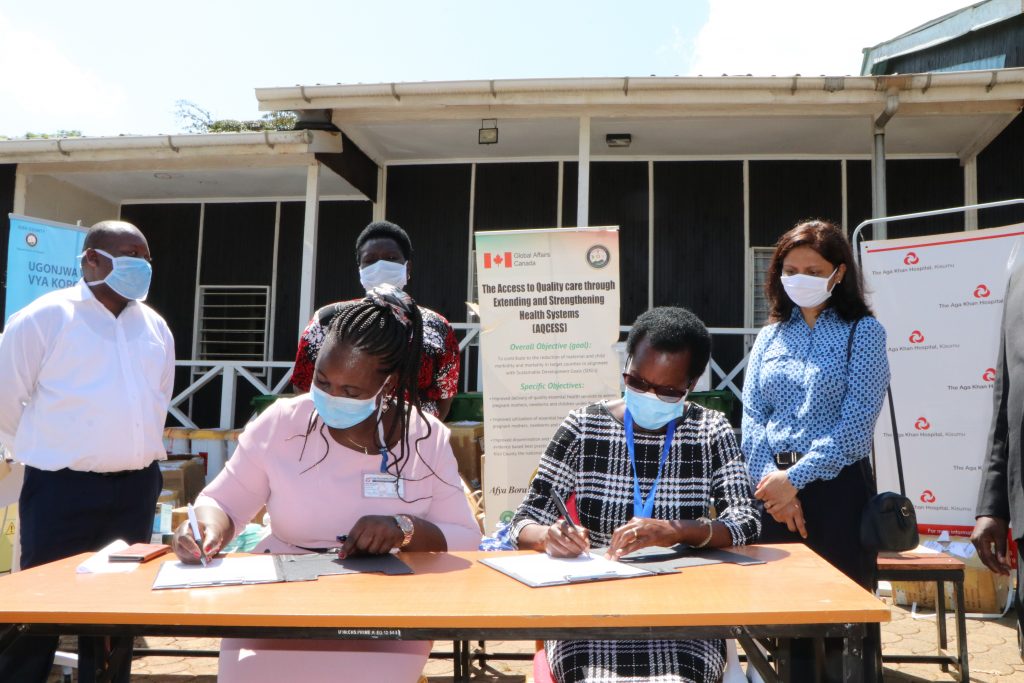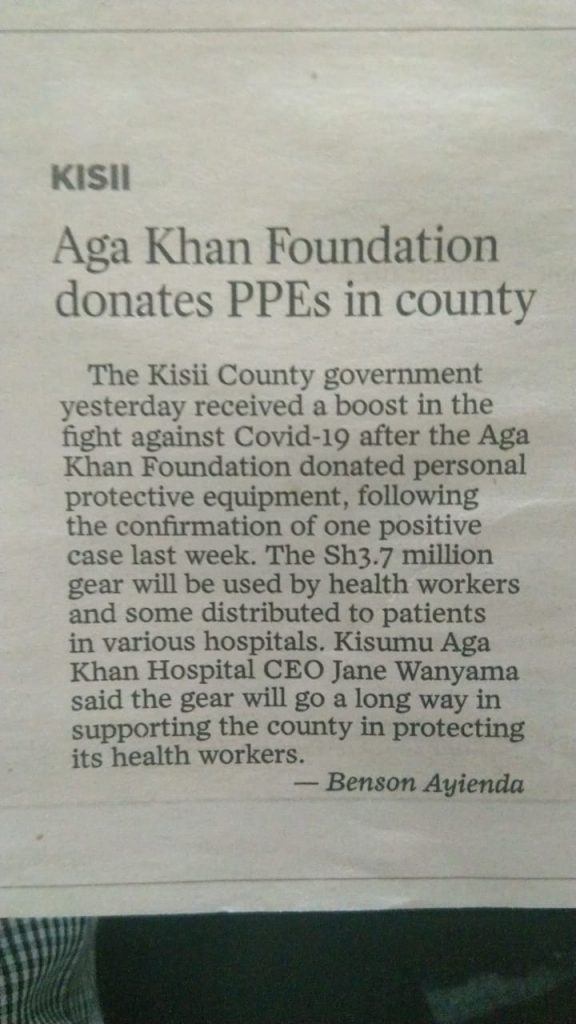Community health volunteers (CHVs) play a crucial role in the healthcare system in Kenya.
As trusted members of the community, they bridge the gap between families in their community and existing healthcare services by tracking community health, providing information about healthcare services and healthy habits, and encouraging people to seek care when needed. For women in particular, community health workers have helped improve maternal and newborn health, providing much-needed information and support to minimize preventable deaths of both women and babies.
In the age of coronavirus, community health workers and volunteers have quickly become their communities’ contact tracers and trusted sources of information.
“If there is a new person in my community, I have to report it to [community leaders],” says Paul Manyura Omabene, a community health volunteer in Kisii, Kenya. He follows up to ensure families and new visitors are supported to practice required isolation and distancing policies.
“As a community health volunteer, I also help people in my community stay healthy by being informed about the coronavirus, its symptoms, and prevention measures,” he adds. “These measures can reduce the spread of coronavirus in my community.”
“If a client is not feeling well, I normally record [it in my notebook],” says Caroline Obtu Opanga, a community health volunteer in Kisii, Kenya.
She records their symptoms and follows up to ensure families are receiving the appropriate care. “With some symptoms, maybe it’s coronavirus, but maybe it’s a cough or pneumonia. They should have a record to make it clear,” she says.
This work is made even more challenging with the changes COVID-19 has brought into communities.
“Life has not been the same,” says Nancy Martins, a clinical officer in Kisii, Kenya. “We no longer move around freely the way we used to move. [People] are not even comfortable interacting with their families. They’re terrified, tensed up.”
People with chronic diseases in particular, she notes, are not receiving the same level of care as they did pre-pandemic. “They used to visit the [clinic] every month,” she says, but restrictions on movement have made it challenging for these patients to access care.
Restrictions on movement, while crucial to limiting the spread of COVID-19, have also made organizing at the community level difficult.
“We call people, we dialogue, we find health problems, we organize the community, and we get solutions from the people,” says Justus Maobe, a community health extension worker in Kisii, Kenya. Limits on congregating as a group have put a stop to these community health meetings for now.
Lack of personal protective equipment, a shortage felt worldwide, has also limited community health volunteers’ ability to continue home visits, a key feature of their work, says Paul.
“There is no way you can just go to a patient [without protective equipment], because we are not aware who is and who is not infected,” he says.

As COVID-19 continues to affect millions worldwide, the Aga Khan Foundation and the Aga Khan Development Network have quickly restructured existing programming to support coronavirus prevention efforts. In Kenya, these efforts include providing much-needed equipment and training to health care providers, and boosting prevention campaigns in communities.
While the pandemic’s effects continue to be felt around the world, these interventions are helping keep communities and CHVs safe. The additional training CHVs receive help strengthen their capacity to do contact tracing and referrals, key to keeping community spread low. They also address stigma and some of the fears around COVID-19, ensuring community members are keeping safe and alleviating some of the mental stress of not knowing. Adequate supply of PPE not only ensures health workers’ safety, but also helps address some of their own fears around contracting the virus.
Initiatives like these, made possible with the financial support of Global Affairs Canada and donations from thousands of Canadians from coast to coast, enable the much-needed work that community health workers and volunteers continue to do for the families in their care.

For now, everyone needs to do their part in slowing the spread of COVID-19. “People need to understand that this pandemic is something new. It has never been managed in the past,” says Nancy.
It’s not like malaria, the common cold, or even HIV, adds Justus. “This is a highly infectious disease, and a deadly threat. We have to change our lifestyle,” he adds. “We should be ready to wear face masks, and remember to wash our hands.”
“Prevention is better than the cure,” says Nancy.
Financial support:

